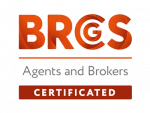Gluten-Free Product Development

Recent Posts
Categories
Gluten-Free Product Development
In the UK, studies have indicated 13% of the general population report symptoms related to gluten sensitivity, with many more choosing gluten-free diets for health reasons.
This has led to an increased demand for gluten-free food products and a need for manufacturers to develop new products and processes. Creating gluten-free products brings some unique challenges compared to traditional production. From careful selection of gluten-free ingredients to avoiding cross-contamination, food manufacturers must take into account a range of considerations when creating and launching gluten-free products.
Coeliac disease and gluten sensitivity
Gluten is a protein that is not totally broken down in the human body by proteases (enzymes that break down proteins) which to allow these proteins to be digested. As a result of incomplete break down of gluten, the undigested gluten makes its way to the small intestine. Most people can handle the undigested gluten without any problem however, for some people, gluten can trigger a severe autoimmune response or other unpleasant symptoms such as bloating, diarrhoea etc. An autoimmune response to gluten is called Coeliac disease which can damage the small intestine.
Gluten sensitivity is estimated to be much more common than Coeliac disease in the UK, with reports suggesting that around 1% of people suffer from Coeliac disease and 13% of a general population sample reporting symptoms attributed to gluten. However, only 24% of those with the condition are clinically diagnosed. This means that many people may not be aware that they have gluten sensitivity.
Developing Gluten-Free Products
Gluten-Free Product Development is the process of creating food products that are free from gluten, a protein found in wheat flour, barley, and rye. It involves the use of alternative ingredients and processes to create products that are safe for people with Coeliac disease or gluten sensitivity.
The development of gluten free products has become increasingly popular in recent years as more people seek out gluten-free items.
The process of developing gluten-free products begins with identifying or creating ingredients that can mimic the properties of gluten. This includes using starches, gums, and proteins from sources such as rice, corn, quinoa, and soybeans. Once these ingredients have been identified or created, they must be formulated into high-quality, nutritious baked goods. This requires careful consideration of texture and taste to ensure that the product is enjoyable to eat. Additionally, nutrition must be taken into account to ensure that the product meets dietary needs and preferences.
The Global Gluten-Free Market
The global Gluten-Free Food Products market was estimated to be worth roughly USD 5.80 billion in 2021.
In the UK, the gluten-free market is estimated to grow at a CAGR of 12.5% between 2022-2028, driven by increasing awareness about the health benefits of gluten-free products among consumers.
Consumers with Coeliac disease are increasingly looking for more variety in their diets, leading to an increase in demand for gluten-free products such as almond flour and defatted almond flour. Bakers are responding to this demand by expanding their gluten-free menus and offering more options than ever before.
Gluten-Free Health Benefits
Going gluten-free can have many health benefits, especially for those with Coeliac disease or gluten sensitivity.
For those with Coeliac disease or gluten sensitivity, eliminating these foods from their diet can help improve digestive issues such as bloating, abdominal pain and diarrhoea. It can also reduce inflammation in the body and improve overall energy levels.
Additionally, cutting out processed foods that contain gluten may lead to weight loss since these types of foods tend to be higher in calories and fat.
Overall, going gluten-free can be beneficial for those with Coeliac disease or gluten sensitivity as it helps reduce digestive issues and inflammation while potentially leading to weight loss.
Regulatory Compliance with Gluten-Free Manufacturing
It is critical to consider regulatory compliance when developing gluten-free products. This includes providing accurate information about allergens and health warnings on packaging labels.
The UK has been a leader in the gluten-free food industry, and manufacturers must adhere to strict regulations to ensure that their products are safe for consumption. The Gluten Free Industry Association (GFIA) was established in 2017 to promote best practices in the manufacturing, testing, and labelling of gluten-free foods.
There are legal limits in place to comply with labelling of products as “Gluten Free” which manufacturers must adhere to if they make a claim that their product is Gluten Free, and this level should be verified by the manufacturer. The legislation is clear that only foods that contain 20 parts per million (ppm) or less of gluten can be labelled gluten free.
Manufacturers must meet the requirements of the Food Standards Agency (FSA), which sets out guidelines for all food businesses operating in the UK. This includes ensuring that all ingredients used are free from gluten, as well as any cross-contamination risks. All food labels must also clearly state whether a product is suitable for those with Coeliac disease or other forms of gluten intolerance.
Coeliac UK is an organisation dedicated to helping those living with Coeliac disease or other forms of gluten intolerance. They work with brands and manufacturers to ensure that no one’s life is limited by gluten.
They provide advice on how to create safe and delicious products that meet the needs of those who require a gluten-free diet.
It’s clear that there are many options available when it comes to finding reliable sources of safe and delicious gluten-free foods in the UK – but it’s important to make sure you’re sourcing your ingredients from reputable manufacturers who adhere to strict safety standards set out by regulatory and trade bodies such as Coeliac UK and the FSA.
Gluten-Free Product Categories
Gluten-free product development applies to many categories, such as:
- Breads and baked goods
- Cereals and Breakfast Bars
- Pasta and Pizza
- Snacks
- Dairy Alternatives
- Condiments, Sauces and Dressings
Conclusion
It is important that we continue to create safe and enjoyable food products for those with Coeliac disease or gluten sensitivity. By carefully considering all aspects of the development process from ingredient selection to regulatory compliance, companies can create products that meet consumer needs while still maintaining high standards for quality and nutrition.
The UK has become a leader in gluten-free product development, with organisations such as Coeliac UK providing guidance on how to create safe and delicious products that meet the needs of those who require a modified diet.
With continued innovation and access to reliable sources of ingredients, food manufacturers are well-positioned to take advantage of the growing demand for gluten-free foods.











